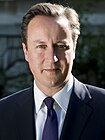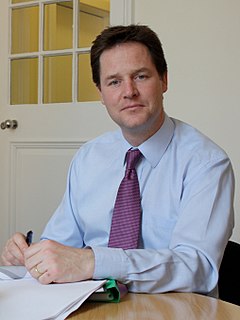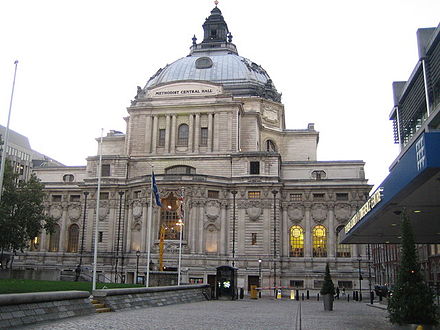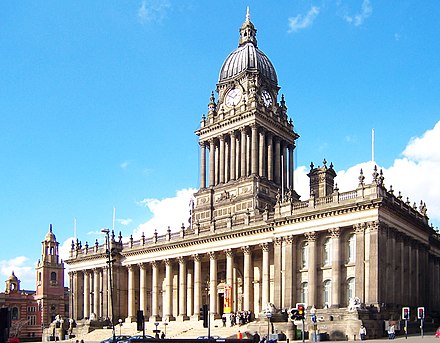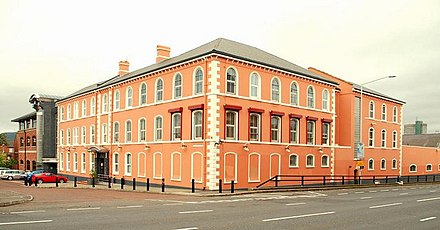In British politics, a Lib–Lab pact is a working arrangement between the Liberal Democrats and the Labour Party.

The 2010 United Kingdom general election was held on Thursday, 6 May 2010, with 45,597,461 registered voters entitled to vote to elect members to the House of Commons. The election took place in 650 constituencies across the United Kingdom under the first-past-the-post system. None of the parties achieved the 326 seats needed for an overall majority. The Conservative Party, led by David Cameron, won the largest number of votes and seats, but still fell 20 seats short. This resulted in a hung parliament where no party was able to command a majority in the House of Commons. This was only the second general election since the Second World War to return a hung parliament, the first being the February 1974 election. Unlike in 1974, the potential for a hung parliament had this time been widely considered and predicted, and both the country and politicians were better prepared for the constitutional process that would follow such a result. The coalition government that was subsequently formed was the first coalition in British history to eventuate directly from an election outcome. The hung parliament came about in spite of the Conservatives managing both a higher vote total and higher share of the vote than the previous Labour government had done in 2005, when it secured a comfortable majority.

The United Kingdom general election debates of 2010 consisted of a series of three leaders' debates between the leaders of the three main parties contesting the 2010 United Kingdom general election: Gordon Brown, Prime Minister and leader of the Labour Party; David Cameron, Leader of the Opposition and Conservative Party; and Nick Clegg, leader of the third largest political party in the UK, the Liberal Democrats. They were the first such debates to be broadcast live in the run-up to a UK election.

The Scottish parliament election, 2016 was held on Thursday, 5 May 2016 to elect 129 members to the Scottish Parliament. It was the fifth election held since the devolved parliament was established in 1999. It was the first parliamentary election in Scotland in which 16 and 17 year olds were eligible to vote, under the provisions of the Scottish Elections Act. It was also the first time the three largest parties were led by women.
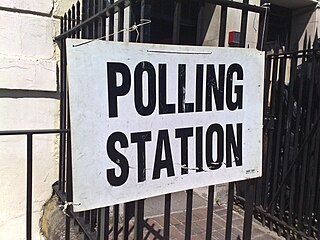
The events surrounding the formation of the United Kingdom's government in 2010 took place between 7 May and 12 May 2010, following the 2010 general election, which failed to produce an overall majority for any of the country's three main political parties. The election, held on 6 May, resulted in the first hung parliament in the UK in 36 years, sparking a series of negotiations which would form the first coalition government since the Second World War.

The United Kingdom's component of the 2014 European Parliament election was held on Thursday 22 May 2014, coinciding with the 2014 local elections in England and Northern Ireland. In total, 73 Members of the European Parliament were elected from the United Kingdom using proportional representation. England, Scotland and Wales use a closed-list party list system of PR, while Northern Ireland used the single transferable vote (STV).

The Rotherham by-election was a by-election for the Parliament of the United Kingdom's House of Commons constituency of Rotherham. The by-election was caused by the resignation of its Member of Parliament Denis MacShane after the House of Commons Standards and Privileges Committee found that he had submitted 19 false invoices "plainly intended to deceive" the parliamentary expenses authority, an issue dating back to 2009 and a wider parliamentary expenses scandal in the UK. MacShane accepted the office of Steward and Bailiff of the Chiltern Hundreds on 5 November 2012, formally vacating his seat. The election took place on 29 November 2012, at the same time as by-elections in Croydon North and Middlesbrough which were caused by the deaths of the sitting MPs.

The Eastleigh by-election, 2013 was a parliamentary by-election held on 28 February 2013 for the United Kingdom House of Commons constituency of Eastleigh in Hampshire.
Events from the year 2014 in Scotland.

The European Union: In or Out is a British television debate that was first broadcast on BBC Two on 2 April 2014. The hour long live debate between Nick Clegg and Nigel Farage was hosted by David Dimbleby. Questions came from the audience, with an equal number of people for and against British membership of the European Union.

The 2015 United Kingdom general election was held on 7 May 2015 to elect 650 members to the House of Commons. It was the first general election at the end of a fixed-term Parliament. Local elections took place in most areas on the same day.

The Rochester and Strood by-election was a by-election for the UK parliamentary constituency of Rochester and Strood in Kent, England, held on 20 November 2014. The by-election was triggered when the sitting Conservative Member of Parliament (MP) Mark Reckless, left the Conservative Party and joined the UK Independence Party (UKIP). He resigned his seat in Parliament in order to seek re-election for his new party.
This is a list of events in Scottish television from 2015.
The UK Independence Party is a British political party, founded in 1993.
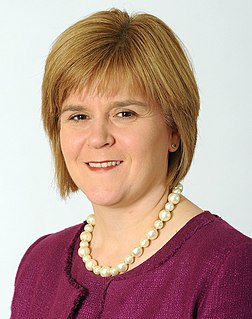
The 2015 United Kingdom general election in Scotland was held on 7 May 2015 and all 59 seats were contested under the first-past-the-post electoral system. Unlike the 2010 general election, where no seats changed party, the Scottish National Party (SNP) managed to win all but three seats in Scotland in an unprecedented landslide gaining a total of fifty-six seats and also become the first party in sixty years to win 50% of the Scottish vote. It saw the Labour Party suffer its worst ever election defeat within Scotland losing 40 of the 41 seats they were defending, including the seats of Scottish Labour Party leader Jim Murphy and also the then Shadow Foreign Secretary Douglas Alexander. The Liberal Democrats lost ten of the eleven seats they were defending with the then Chief Secretary to the Treasury Danny Alexander and former leader Charles Kennedy also losing their seats. The election also saw the worst performance by the Conservative Party which received its lowest share of the vote since its creation in 1965, although it retained the one seat that it previously held. In all, 50 of the 59 seats changed party, 49 of them being won by first-time MPs.
Various newspapers, organisations and individuals endorsed parties or individual candidates for the United Kingdom general election, 2015

The 2017 United Kingdom general election took place on Thursday 8 June 2017, having been called just under two months earlier by Prime Minister Theresa May on 18 April 2017 after it was discussed in cabinet. Each of the 650 constituencies elected one Member of Parliament (MP) to the House of Commons. The governing Conservative Party remained the largest single party in the House of Commons but lost its majority, resulting in the formation of a minority government with a confidence-and-supply arrangement with the Democratic Unionist Party (DUP) of Northern Ireland.
3,971 candidates stood in the United Kingdom general election of 2015, which was held on 7 May 2015.
This is the results breakdown of the 2015 United Kingdom general election.
